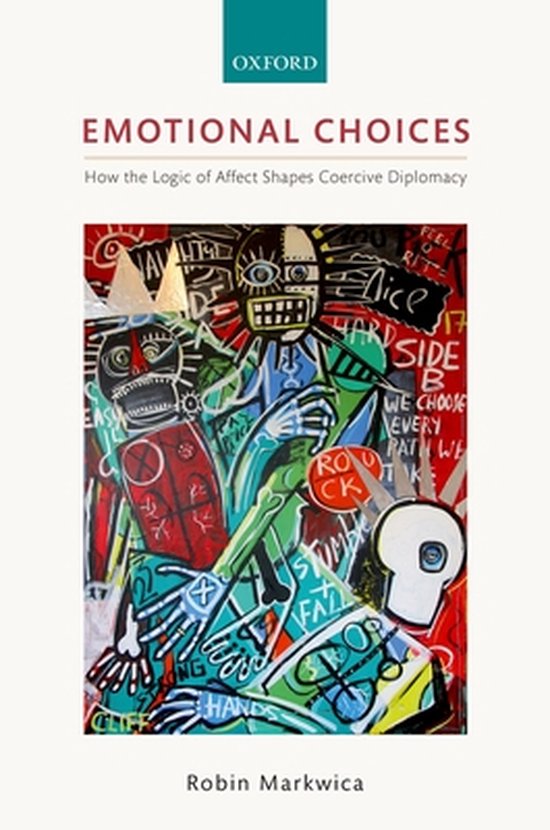
Emotional Choices
This book examines coercive diplomacy and presents a theory of 'emotional choice' to analyse how affect enters into decision-making.
Why do states often refuse to yield to military threats from a more powerful actor, such as the United States? Why do they frequently prefer war to compliance? International Relations scholars generally employ the rational choice logic of consequences or the constructivist logic of appropriateness to explain this puzzling behavior. Max Weber, however, suggested a third logic of choice in his magnum opus Economy and Society: human decision making can also be motivated by emotions. Drawing on Weber and more recent scholarship in sociology and psychology, Robin Markwica introduces the logic of affect, or emotional choice theory, into the field of International Relations. The logic of affect posits that actors' behavior is shaped by the dynamic interplay among their norms, identities, and five key emotions: fear, anger, hope, pride, and humiliation. Markwica puts forward a series of propositions that specify the affective conditions under which leaders are likely to accept or reject a coercer's demands. To infer emotions and to examine their influence on decision making, he develops a methodological strategy combining sentiment analysis and an interpretive form of process tracing. He then applies the logic of affect to Nikita Khrushchev's behavior during the Cuban missile crisis in 1962 and Saddam Hussein's decision making in the Gulf conflict in 1990-1 offering a novel explanation for why U.S. coercive diplomacy succeeded in one case but not in the other.
Why do states often refuse to yield to military threats from a more powerful actor, such as the United States? Why do they frequently prefer war to compliance? International Relations scholars generally employ the rational choice logic of consequences or the constructivist logic of appropriateness to explain this puzzling behavior. Max Weber, however, suggested a third logic of choice in his magnum opus Economy and Society: human decision making can also be motivated by emotions. Drawing on Weber and more recent scholarship in sociology and psychology, Robin Markwica introduces the logic of affect, or emotional choice theory, into the field of International Relations. The logic of affect posits that actors' behavior is shaped by the dynamic interplay among their norms, identities, and five key emotions: fear, anger, hope, pride, and humiliation. Markwica puts forward a series of propositions that specify the affective conditions under which leaders are likely to accept or reject a coercer's demands. To infer emotions and to examine their influence on decision making, he develops a methodological strategy combining sentiment analysis and an interpretive form of process tracing. He then applies the logic of affect to Nikita Khrushchev's behavior during the Cuban missile crisis in 1962 and Saddam Hussein's decision making in the Gulf conflict in 1990-1 offering a novel explanation for why U.S. coercive diplomacy succeeded in one case but not in the other.
| Auteur | | Robin Markwica |
| Taal | | Engels |
| Type | | Hardcover |
| Categorie | | Mens & Maatschappij |